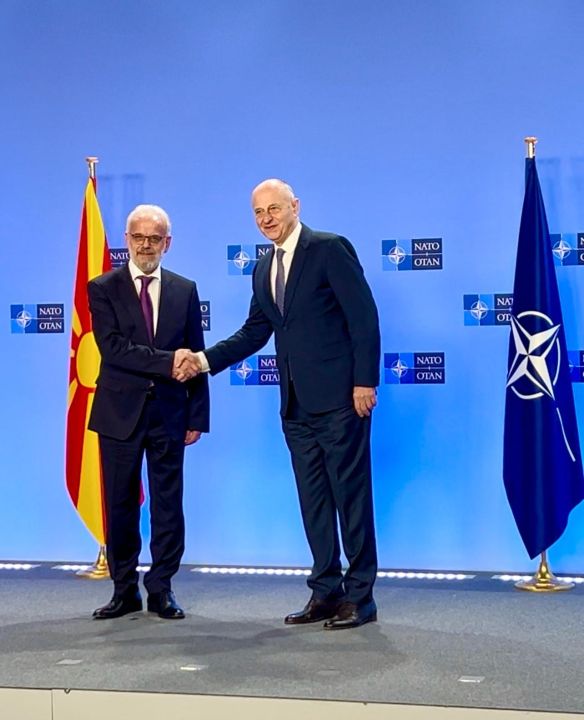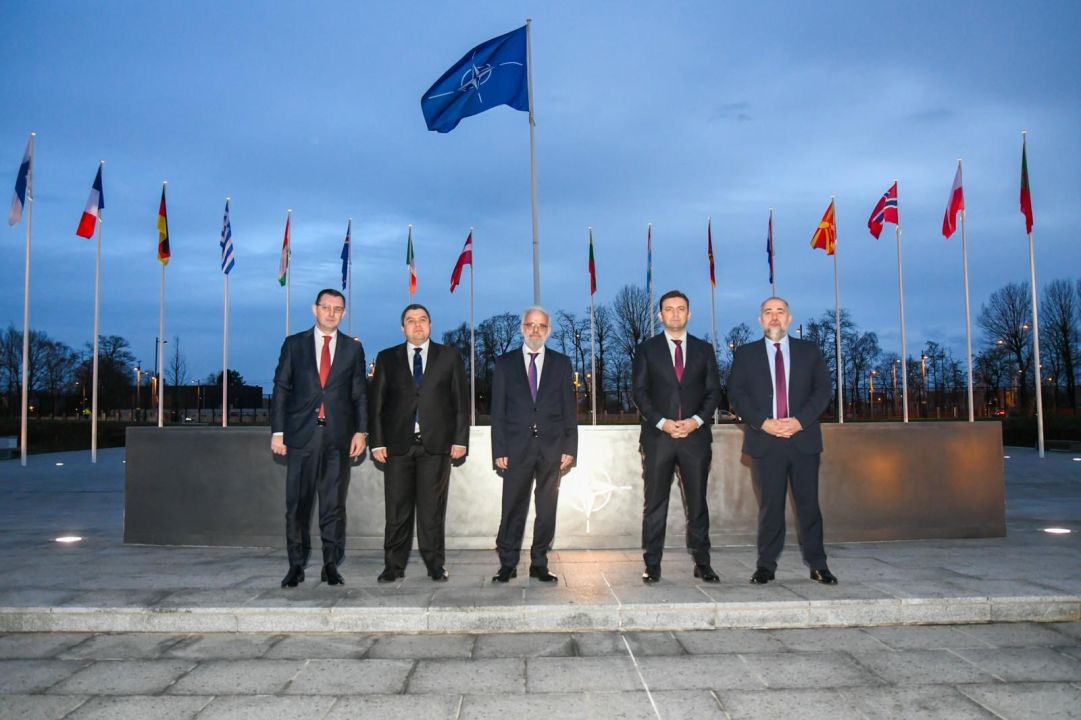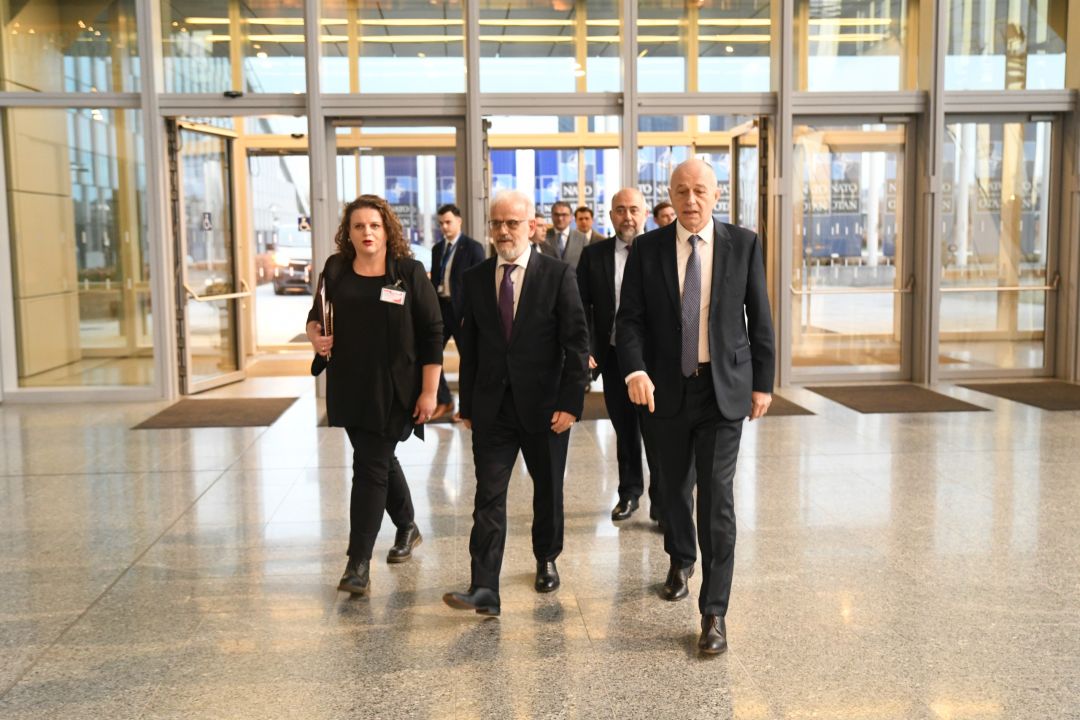The President of the Government of the Republic of North Macedonia, Talat Xhaferi and the Deputy Secretary General of NATO, Mircea Geoană, had a joint meeting with the frames of the working visit to NATO HQ in Brussels. The meeting underlined North Macedonia’s role as a factor of stability in the region.
During the meeting they discussed the security and stability of the region, but also the global security and current developments in Ukraine and the Middle East. Prime Minister Xhaferi emphasized North Macedonia’s commitment towards maintaining stability and security in the Euro-Atlantic zone, being one of the newer member-states, not only as an influential factor of stability on the Western Balkans, but also through active participation in NATO’s missions in Kosovo, Iraq, EUFOR, ALTEA in Bosnia and Herzegovina and NATO’s battle groups in Latvia, Romania and Bulgaria.
In accordance with the commitment to invest in defense and in accordance with the NATO decision from the Summit in Vilnius, the Republic of North Macedonia from this year allocates at least 2% of the GDP for the defense budget, of which 30% is for the modernization of the Army. Thus, North Macedonia is among the NATO members that have reached the commitment, which is the basis for the effective implementation of NATO's most robust defense plan. Additionally, North Macedonia continues its staunch support for Ukraine in its fight for freedom and peace of the Ukrainian people, and against the atrocities which the Russian military aggression still causes on the territory in Ukraine.
The interlocutors also discussed the forthcoming 75th anniversary of the Alliance. In the most challenging year for the Alliance since its inception, NATO expanded with another member - Finland, and soon will welcome another member - Sweden, making the Alliance more united and stronger than ever.
Taking into account the upcoming elections in which more than 2 billion citizens around the world, including in North Macedonia, will decide, the meeting also discussed the challenges ahead in the election period, for which the focus is placed on strengthening the way to handle hybrid threats, disinformation, and cyber defense.














